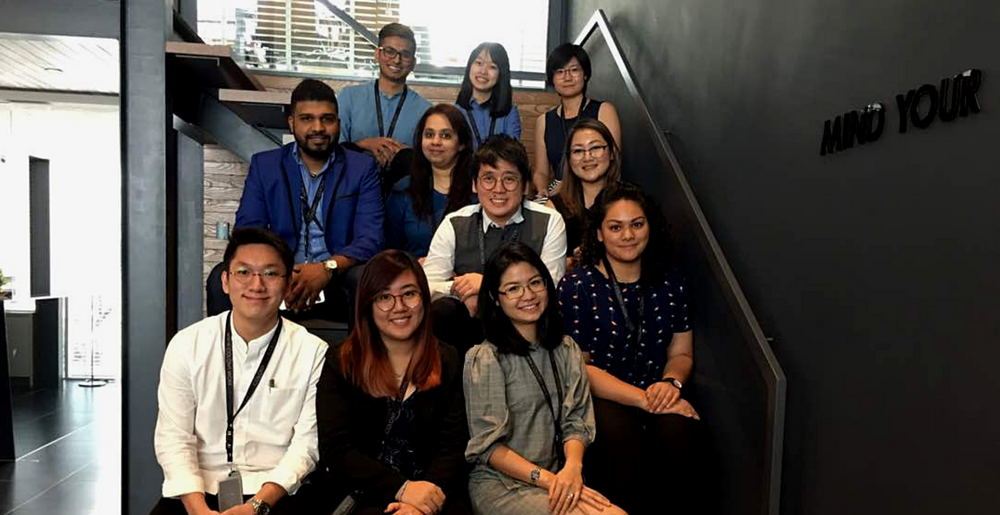When Timothy Tiah ventured out of Nuffnang, many curious eyes followed him to see what he’ll be doing next.
And where he went is to develop a space called Colony: a serviced office space located in the heart of KL, a heartbeat away from Pavilion.
It is a joint effort between Timothy, wife Audrey Ooi and a small team with one core vision—changing the way Malaysia thinks about offices.
You see, most co-working spaces in Malaysia focus on providing a space for freelancers and startups to work, while forging relationships and growing their network within a space.
Community is important for them, and the type of community formed within a particular space can actually make or break a potential tenant’s opinion of the space.
Meanwhile, Colony instead wants to take on your normal, everyday offices. Their serviced office space argues that keeping your employees happy can be good for business, in terms of staff retention, employee productivity and convenience.
And now, three months in, Colony is already turning a profit.

We’ve written pretty extensively about the space from its inception, all the way to a full-on review of the place. And in one of those articles, Timothy made predictions about if and when he would be making a profit from this new endeavour. He said that the month of October is the projected break-even month.
Timothy truly expected to be losing money 6 months into the business, which is what he had been telling investors.
Now however, they aren’t just breaking even. They’re profitable.
“Even if you count the depreciation of our renovations and everything, we are still profitable. This is awesome, because very few co-working spaces in the region are actually profitable, especially over a short period like this.”
According to Timothy, among serviced spaces that he’s observed like Regus or Servcorp, it takes 18 months for them to break even. Meanwhile, Colony is humbled to be able to achieve this in 3 months.
“Ours is 45% actual paid [occupants]. We have some free ones that we give to media or as part of our CSR program to support non-profits or social enterprises but I didn’t include them in the 45%.”
“Based on the profit run rate we have in October—assuming we don’t grow at all for the coming years—we’ll make back our investment in the renovations and fit out in 3 years. Realistically though we’ve signed more leases for the coming months and occupancy will grow so we expect a payback period of 18 months to 2 years.”
So just like the last time we wrote about WORQ, we’ve gone up close and personal with Timothy Tiah to ask—how did he manage this profitability?
This is what he thinks:
1. Their vision resonates with the tenants.

Based on Timothy’s cursory surveys of the guests he has with him now—like hotels, he calls them guests instead of tenants or renters—their main selling point is their vision to change up their work experience.
And here’s how they turn this concept into a proper actionable. Rather than focusing on the community formation (though they have begun community events), Colony’s aim lies more towards keeping their guests happy, and servicing them.
For example, each staff member is given a daily budget that they can use—no questions asked—towards guest happiness.
With the happiness fund, they went out and bought Panadol and 100 Plus for a guest who fell sick. Or they helped a guest get a travel adapter when they found out that their socket didn’t fit what Colony had to offer.
Even when we were there, we got a care package of coffee and snacks when there was an issue with the in-house cafe.
2. It’s their premium location.
Though Colony is charging a premium for use of their space (approximately RM1000 per head for a workspace) having a space in a high-end, premier location gave them a competitive advantage.
In fact, Timothy lists this as Colony’s strategy, and they’ll be carrying this mindset forward into their next locations.
To them, nothing less than tier 1 locations will do.
3. Keeping their potential market broad.
Even if we look overseas, corporates have been moving their operations into co-working spaces.
WeWork has been making serious efforts into attracting Fortune 500 companies. A sizeable chunk of Microsoft is already in WeWork as well.
Colony does have its fair share of startups and freelancers who came in of their own volition. But targeting more than just those parties helps keep their options open.
To us, it seems like Colony has simply decided to jump the gun and move directly to target corporates from the get-go; while it’s not necessarily an untapped market here, it’s still a blue ocean.
4. Having previous marketing experience is an advantage.

“One thing we’re really good at is marketing, because we have a media background.”
While Timothy cites the design of the space and location as elements of attraction, he thinks that one thing both he and Audrey are good at is marketing.
“We’re really efficient with our marketing. We spent about RM32k for the quarter in marketing dollars and got back over RM600k in signed contracts (sales).”
This is about 2000% return of investment, and this RM32k cost includes even guest referrals, and etc.
Editor’s Note: We’ve made an amendment to correctly reflect the percentage above.
5. Rather than occupancy, their focus was always on profitability.
“Most co-working spaces go the route of trying to boost occupancy so that they can show everyone that they have high occupancy numbers within a short number of months,” said Timothy.
“But it doesn’t work that way. This is the kind of business where you’re selling leases. And not everybody who buys offices needs it today. They might need it tomorrow, the day after, or next year. So the only way you can sell and get 80%–90% occupancy as a metric, is if you give it for very, very cheap, or if you give free seats.”
“We resist the temptation to do that. Because if we sell for very cheap, what happens is that eventually it devalues the brand.”
For example, if you’re used to buying something for RM5, it’s going to be more difficult to convince you to spend RM15 on it instead.
So, by maintaining their admittedly high prices, even only 45% occupancy is enough.
6. Ancillary revenue accounts for 45% of their overall revenue too.

Another important factor for co-working spaces (or serviced office spaces) also lies in the running of events. And perhaps because they spend a lot of time pitching to these high-profile clients for leases as well, they were able to host the Microsoft Pro launch in Colony, Mont Blanc last week, and even had LinkedIn and HP hold events in their space.
Besides hosting events, which does account for a sizable chunk of their revenue, other small things do add up.
“We’re pretty good at ancillary revenue. And it’s not just events, though they do add up to total revenue, but it’s all the different types of revenue from the café, to the services that we provide.”
“There’s all these kinds of things like mailing stuff, printing stuff. It can account for almost 50% of our overall revenue so that actually helps.”
That being said, as their occupancy continues to grow, Colony predicts that this ancillary revenue will settle at 30% as their main source of income would come from the workspaces.
###
Even though hospitality is Colony’s specialty, Timothy thinks that he still has a lot to learn about it.
“I think it takes decades to build a great hospitality culture, and we’re just at a baby stage right now. I don’t think we’re perfect, but we’re still looking at it right now.”
“In terms of other Colony co-working spaces, we’re definitely looking at new locations, and the great thing is that now that we’re profitable, we have a lot of leverage when it comes to negotiating with landlords.”
With a track record of profitability, it will be easier for them to get good deals from landlords, which in turn will give them more choices when it comes to the quality of spaces they’re looking at.












